You are currently browsing the category archive for the ‘Spiritual Elders’ category.
During 1950s to 1953 having been a spiritual father at Neamt Seminary, at the time the only monastic seminary in the country. I had 35 deacon students under my instruction. One day I served the Divine Liturgy with a deacon, the oldest among them.
While I was preaching – by rule we had to say a 10 minutes sermon, to talk about the Holy Mysteries, which can appear just as bread and wine, or in the form of flesh or as a babe – the deacon was consuming the Holy Mysteries and thought to himself: “Is it really just as the father says?” and suddenly his mouth was filled with blood and flesh instead of bread and wine. He dropped the chalice over the proscomidiar and felt to the ground. I thought that he was ill. I was standing half a meter away from the altar’s door. He doubted! You see my dear, he wasn’t living the faith! “Can it really be just as father said…?!” So then, why are you preparing yourself for the priesthood?
This had happened twice in my lifetime. Once at Sihastria Monastery and now at Neamt. My dear, know that God created two most wondrous things! He created a distinguished woman who gave birth to Christ, and He created the priesthood, which brings God from heaven to be born on the Holy Table!
Do you realize what priesthood mean?! Make no distinction between one priest or another. Any confessor is able to forgive sins. Is not his worthiness that absolve you, but the grace of God working through him. God gave this gift to the priest to absolve us from sins, from our awful and great falls, to unbound us forever.
Do you realize what possibilities does man have in order to be saved?! Regardless of sins, a confessor should know and be happy when heavy sins are been told to him, because he is saving a man from deep waters. He no longer scolds him of why he is wet. But rejoices that he drew him out of the water.
(From “The words of Elder Arsenie (Papacioc), 2nd edition by Sihastria Monastery Press”, translated form the Romanian)
More about Anghel Papacioc – the Archimandrite Arsenie
Anghel Papacioc, Macedonian in origin, had chosen since his youth, the path of serving God and his nation. For this “guilt” he will be imprisoned under three regimes – Carol the II, Antonescu’s and the communist regimes. Thus, in 1938 he is taken for few months in the concentration camp at Miercurea Ciuc. in 1941 he was arrested again and imprisoned at Aiud, then released in 1946. After been freed from the prison, he entered the monastic life, having as his godfather of monasticism, Father Petroniu Tanase (later the Abbot of Prodromu skit in Mount Athos). Father Arsenie will become a skilled spiritual confessor at Slatina Monastery, where he struggled together with Elder Cleopas and other blessed elders. From Slatina Monastery, he was arrested again in 1958 and sent to Aiud, receiving a sentence of 40 years (!). He is freed again, following the general amnesty decree from 1964. Since then, he served God incessantly before His Holy altars, praying for the world in the Monastery of Techirghiol. Elder Arsenie was a father full of joy and inner light, a chosen vessel of the Holy Spirit.
I’m ready to die!
During the re-education process at Aiud, I was called one day into the colonel’ office. I was “well known” in the prison since I was a priest, and a monk. As I was walking in my pinstripe prison uniform, humbled so to speak, or at least humble in form, the Colonel asked me to explain to him if God exists.
I said, “Yes, sir, He does! our existence, our breath, our intelligence and reason, prove it … They are made by a big Master. They are not the result of chaos. Or who else could had made them!?”… And I went on with my explanation: “There are so many signs, Christ was incarnate and He was risen. Why don’t you believe?” …
It was a great deal of me daring to ask him this question. But I had to defend the Truth!
He said: “The war that burst in Russia in the name of the Cross, convinced me that there is no God.”
I replied: “What erupted in the name of the Cross, sir ?! That madman Hitler who wanted to conquer Russia believing that the Russians will give in?! How about before this war, why didn’t you believe?”.
Then he asked me: “What is your last argument?”
I said: “I am ready to die, for Him, sir! When he saw that he wasn’t prevailing over me, he started yelling, “Take him away!”
(from an Interview with Elder Arsenie Papacioc)
More from the words of Elder Arsenie
“An institution, as well as a nation, lives by those who gush forth, who carry the cross without failure. A great love for God requires constant sacrifice. This world is not fallen, we are guilty as we do not know how to love, we do not know to cherish it! What have we done for this world, if we’re speaking in terms of salvation? What have we done for this world in order to change it?!
This is what it will be required of us at the judgment seat of Christ!”
“He, who flees from persecution, flees from God!…”
A sermon almost providential given 2 weeks ago
Orthodox Christians Must Now Learn To Live as Exiles in Our Own Country
No, the sky is not falling — not yet, anyway — but with the Supreme Court ruling constitutionalizing same-sex marriage, the ground under our feet has shifted tectonically.
It is hard to overstate the significance of the Obergefell decision — and the seriousness of the challenges it presents to orthodox Christians and other social conservatives. Voting Republican and other failed culture war strategies are not going to save us now.
Discerning the meaning of the present moment requires sobriety, precisely because its radicalism requires of conservatives a realistic sense of how weak our position is in post-Christian America.
More here: http://time.com/3938050/orthodox-christians-must-now-learn-to-live-as-exiles-in-our-own-country/


Knowing the will of God is one of the most delicate and complicated matter of our lives, especially for those who are trying to find it through prayer. For although His will is revealed according to Thy words: “Ask, seek, knock, and it shall be given you”, yet it requires patience, trials, temptations and [ascetic] experience, to extinguish man’ own will and passions that cannot withstand the inexpressible tenderness and sensitivity of divine grace.
(Elder Joseph the Hesychast)

A monk needed to go for a day-trip to a big city, accompanied by one of his acquaintance. In the midst of urban’ uproar the monk claimed to have heard a cricket, though his companion did not believe him. Crossing the road and looking carefully under a tree the monk found the cricket, to the astonishment of his relative.
– You must have a superhuman hearing!
– No. My ears aren’t different from yours, said the monk. But everything depends on what you’re used to listen with them
– No! I would not be able to hear a cricket in this noise!
– It all depends on what is important to you, reiterated the monk. Let’s make a demonstration. So the monk took out few coins from his packet and dropped them quietly on asphalt. And despite of the loud noise of the city, all the people around them turned their heads thinking that the scattered coins could’ve fallen from their packets.
– Do you understand now? It all depends on what is important to people … If we watch or listen to the contentions daily news on television, our ears become accustomed only to what is ugly and evil. We become fearful and helpless! Then we’ll say: “Life is hard, people are evil, we live in an insecure and ugly world, you cannot trust anyone or anything …”
And meanwhile the crickets sing, the leaves rustle, the waters flow… and we do not hear them.
Taken from the Friends of Mt Athos blog

Our Lord Jesus Christ, who “untied the works of the devil” (1 Jn. 3: 8) by His humility, had shown us the most powerful weapon against the spirits of wickedness under the heaven. The whole earthly life of our Savior is a powerful and unprecedented example of humility. His descent from His heavenly throne on this corrupted earth, His birth in a manger, His upbringing that remained unnoticed in the mysterious city of Nazareth, His obedience without murmuring against others, His complete service to others to the ultimate self-sacrifice on the Cross, the washing of His disciples’ feet, His Passion and death on the cross; all bear witness to His perfect humility. But our Savior humility indebted us to follow in His deeds “I gave you an example, that as I have done to you, ye should do to others” (Jn. 13:15) He told his disciples after He washed their feet.
He who humbles himself lays down the very foundation of a moral, righteous life. If a man engages in various spiritual labors without humility, but overcome by pride, then sooner or later, he will fall. Only the struggles and works erected on the foundation of deep humility will not be shaken. The higher the building that we want to raise, the more we ought to deepen its foundations. So it happens in the spiritual life. The more we desire to be raised closer to God, the more we ought to humble ourselves.
The power of the devil resides in pride, so his undoing. He is strong by his pride, but only before the proud, as only over those he has power.
Before the deeply humbled man, his pride proves a weak weapon. The ice can be very hard, but only during frosty weather. When the sun warms it up, then the hard ice begins to melt. Likewise the devil pride proves helpless before the humility of those truly pleasing to God. By their humility, they evince to be the bravest warriors.
Isn’t this the true bravery? to be reviled, and not to not avenge, to forgive and to overcome evil with good? (Rom. 12:21)
(Archimandrite Seraphim Alexiev, “The spiritual life of the Orthodox Christian”)

I believe that there is no better call than “to think beautifully!”. What is a “beautiful thought”? It means to think of something good not only at a particular moment, but to think beautifully at any moment of your life, to be mindful of your thoughts, to select the thoughts that go through your mind, to keep the good thoughts and possibly to extent them, to put them into action. The foundation of spiritual life is the thought, so the essence of the religious life is inner discipline, the discipline of the mind. (Archimandrite Theophil Paraian, “Words to Youth”)

If time would be the only form of existence, surrounded from all sides by death, then truly one wound have no hope in anything. For hope in the brief future pleasures which pass away, is not worthy of this title. So “Do not you hope and do not fear” would be the wisest advice one could give man in this case. Anticipate death, be apathetic towards all, if all we expect is nothing after all! Immerse your thoughts in the noise of the “late night’ party or in the forgetfulness brought by alcoholic pleasure and the paroxysm of the unleashed peripheral senses!
But time is not the ultimate reality! Time is only one aspect of life. It is its outer face, the face of the spiritual fallen world. A man capable of spiritual life senses time much less. Everyone knows from experience that happy moments pass almost unobserved. On the contrary, strong sufferings are experienced as lasting longer than the mathematical time. So time can be measured by: one’ internal experience and its mathematics unit, and the connection between these two forms of time is very lax. An hour of time can be experienced sometimes as hours, or as a short moment, or simply not observed. This means that eternity pervades time, invades it and cause it to flow.
(Excerpt from: Fr. Dumitru Stăniloae, on New Year, “Romanian Telegraph”, January 1. 1935)

Newsletter N 1. January 1970
New Year sermon, 31 December 1969
In the Name of the Father, the Son and the Holy Ghost.
Once again a new year is approaching. When we are young we greet the new year with open hearts and it seems to us that everything is possible in it. It stretches before us like an endless plain of virgin snow; no footprint has yet marked the whiteness. Everything is possible, everything is pure and shining. In declining years we await the new year with a kind of inner patience, we feel that it will be a repetition of the past. There may be new events in plenty but they will be familiar, earthly happenings which we know how to live with. In both cases we are mistaken. Yes, the new year lies before us like a path that no one has yet trodden, a clear, virgin plain that must flower with a wealth of human good deeds. Whatever our age a path lies ahead of us and it is up to us to make it the way of the Lord, or not. It depends on us whether for those around us and for future generations we make a track to Heaven or to Hell, either eternal Hell, or simply the cruel human hell on earth. And at the same time what lies before us is, as old age sees it, the usual and familiar, only that it has never happened to us before. Life may be as ordinary as ever, but we may be different, the same events may occur again but be quite new because we have changed.
We can enter this year creatively, but only on condition that we enter with hope, that is with the certainty that the Lord is in this year, that He is the master and will lead us to the right place, and with the faith that nothing in this year will happen without the will or acquiescence of God. If this is our attitude we shall see that nothing is chance, (whoever believes in chance does not believe in God) that there are no pointless meetings and every person is sent us by the Lord. And if we enter this year with the knowledge that everything — light and dark, good and terrifying — is a gift of God and is sent us so that through us faith, hope, love, joy and the strength of the Lord should enter the world, if we firmly believe that every person who crosses our path is sent in order that we may bring him the word or action of the Lord or receive it from him, life will be meaningful and rich. Otherwise it will remain a matter of chance, an endless string of fortuitous events. Let us enter upon the new year with this faith and hope and this burning of the spirit, let us receive each other and anyone whom God may send us as the Lord receives us on our way, and let us accept anything that befalls us as coming from the hand of God, and in all circumstances let us be Christ’s; then all will be well.
The year has passed and many are now seeing the new year in the Kingdom of God. They have run their course; we are still on earth. Let us remember those who lived among us, those whom we knew and loved, and those whom we barely noticed through inattentiveness. Let us remember them now at the throne of God; let us remember all those countless people who perished miserably this year from illness, in accidents, in war. Let us remember everyone and leave out no one, and enter into this new year with a heart open to all. And before we separate, let us sing ‘eternal memory’ to all the departed, and let us keep that eternal memory in our hearts with love and thanksgiving to God that He let us meet people whom we could love and respect and whose example could inspire us. (Choir: eternal memory) May God bless the new year: I wish you a happy new year, to live, to love God, to love people and to serve them.


We are on the threshold of the Holy and Great Lent. This Sunday of the expulsion of Adam from Paradise as the last rest before our spiritual struggle, places us at the beginning of our sinful life on earth. We are banished from Heaven because of disobedience, pride and non-abstinence. A life on earth full of struggle, suffering, tears and death, is our “reward” for sin.
The state of Adam banished from paradise, which is also our state, is reflected in the humble hymns of this Sunday: “Standing Adam at the gate of Eden, wiping for his nakedness and moaning:
Woe to me, that I disobeyed Your good commandment and being stripped of Your glory, alas, with shame I am laden. Woe to me, naked of my innocence and left in poverty. Now oh Eden, I will not delight in your sweetness…”
So, the struggles, the sorrow and wiping of lent are the sorrow and mourning for our lost Heaven, which we ought to regain with much suffering. This Sunday Gospel reminds us again of the two great deeds: humility and love, which are the basis of all good deeds. But fasting together with prayer and struggle can be thwarted by the enemy if we are not attentive. Therefore our Savior teaches us: “And when you fast, do not look dismal, like the hypocrites, for they disfigure their faces that their fasting may be seen by men. […] But when you fast, anoint your head and wash your face, that your fasting may not be seen by men but by your Father.” (Matthew 6: 16-18).
Let’s not forget the lesson from the parable of the Publican and Pharisee when we fast. Lets struggles with love but guard our work and keep it silent. Let the withering of our body be clothed in the gladness of our heart, thinking about the great benefit that fasting brings. The anointing of our head and the washing of our face should not be taken literally, but in a spiritual sense. Saint Maximus the Confessor tells us that the face is the icon of our entire live, and the head is the symbol of the mind (see Philokalia). So the washing of the face means to cleanse our lives from all defilement of sin, and to anointing of the head means to acquire a mind full of divine knowledge.
Worldly cares usually occupy all of our time and there is no respite to care for the soul. But the worries should be proportioned to the significance of our labor. As our Savior tells us: “Do not lay up for yourselves treasures on earth, where moth and rust consume and where thieves break in and steal, but lay up for yourselves treasures in heaven […] For where your treasure is, there will your heart be also.” (Matthew 6: 19-21).
These earthly possessions compared to the one expensive treasure – our soul, do not deserve the attention they are given. We cannot ignore the bodily careless, but the caring for the soul should come first, so this Lenten journey, a time of weariness and cleansing of soul, should not be spent in many of the worldly cares.
In particularly, The Holy Gospel draws our attention to the love of neighbor, namely the forgiveness of our neighbor as a great deed, well pleasing to God. So much our Savior stresses the forgiveness of our neighbor that without it, He does not forgive our sins: “If you forgive men their trespasses, your heavenly Father also will forgive you; but if you do not forgive men their trespasses, neither will your Father forgive your trespasses.” (Matthew 6: 14-15)

While all sin is directed against God and only from Him we can obtain forgiveness, however, of the sin against our neighbor God does not forgive us without his/her approval. Therefore, when we ask someone forgiveness that we offended him, he replies: “May God forgive you! ” Meaning: I ‘ve forgiven you, so the Lord God will forgive you. And that is how God forgives us.
First we need forgiveness from God for the renewal of our mind and our labor during this lent will follow this path. So in our daily Prayer to our Lord, we commit before God: “Forgive us Lord, our sins, as we forgive our debtors.” Without this forgiveness, God does not forgive us. Not only that He doesn’t forgive us, but He also will not receive our good deeds. This is told clearly by our Saviour: “Therefore if you bring your gift to the altar, and there remember that your brother halt aught against you, leave there you gift before the altar, and go your way; first be reconciled to your brother, and then come and offer you gift.” (Matthew 5: 23-24)
Elder Petroniu Tanase of the Mt Athos


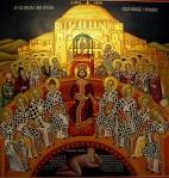 Christian Dogma
Christian Dogma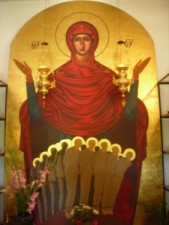 Christian Martyrs
Christian Martyrs Christian Orthodox Churches and Monasteries
Christian Orthodox Churches and Monasteries Christian Sermons and News
Christian Sermons and News Church's Teachings on Fasting
Church's Teachings on Fasting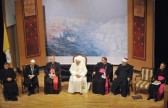 Ecumenism – a Great Heresy
Ecumenism – a Great Heresy Father George Calciu
Father George Calciu Life_a Sacred Gift form God
Life_a Sacred Gift form God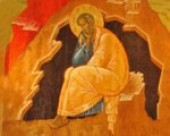 Orthodox Saints and Church Fathers
Orthodox Saints and Church Fathers Spiritual Elders
Spiritual Elders Daily Bible Readings
Daily Bible Readings Journey to Orthodoxy
Journey to Orthodoxy Listen to Ancient Faith Radio
Listen to Ancient Faith Radio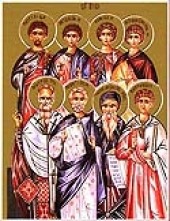 Orthodox Calendar of Feasts and Saints
Orthodox Calendar of Feasts and Saints Orthodox Christian Mission Center
Orthodox Christian Mission Center Orthodox Institute
Orthodox Institute OrthodoxChristianNetwork TV
OrthodoxChristianNetwork TV
Recent Comments